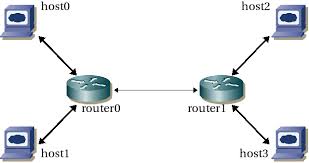A network host is a computer or other device connected to a computer network. A network host may offer information resources, services, and applications to users or other nodes on the network. A network host is a network node that is assigned a network layer host address.
Computers participating in networks that use the Internet Protocol Suite may also be called IP hosts. Specifically, computers participating in the Internet are called Internet hosts, sometimes Internet nodes. Internet hosts and other IP hosts have one or more IP addresses assigned to their network interfaces. The addresses are configured either manually by an administrator, automatically at start-up by means of the Dynamic Host Configuration Protocol (DHCP), or by stateless address autoconfiguration methods.
Every network host is a physical network node (i.e. a network device), but not every physical network node is a host. Network devices such as modems, hubs and network switches are not assigned host addresses (except sometimes for administrative purposes), and are consequently not considered to be network hosts. Devices such as network printers and hardware routers have IP addresses, but since they are not general-purpose computers, they are sometimes not considered to be hosts.
Network hosts that participate in applications that use the client-server model of computing, are classified as server or client systems. Network hosts may also function as nodes in peer-to-peer applications, in which all nodes share and consume resources in an equipotent manner.

